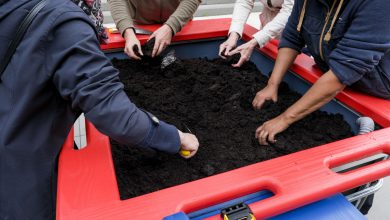Did you know that Akiba fruit is a natural antibiotic?
The world consists of many secrets waiting to be discovered. The fruits of this semi-evergreen proliferating vine were initially found growing wild in the forests along the mountain slopes and Japan and serve as a major part of the Tohoku diet.
The purple Akiba was mainly considered a commercially unimportant fruit in the Japanese market, due to its somewhat bland taste and poor storage properties, until a cultivated variety was developed and grown in Yamagata Prefecture to meet the exotic demand for the Akiba fruit.
The Akiba fruit is also grown on a very small scale in Europe, New Zealand and the United States, making it available practically everywhere in the world, so you don’t have to stress too much to get it.
The Akia fruit is a seasonal fruit, available for a limited season in early fall. Before sugar was widely available, many townspeople considered the purple Akiba the princess of the mountain. Depending on the variety of the Akiva fruit, it may also ripen green to violet, gray or purple-gray when ripe. Purple Akiba fruit has a soft and crunchy consistency with a mild, sweet and suddenly bitter taste or aroma. The seed produces a mild bitter taste and added texture Before moving on, remember that self-medication is not recommended, so before you begin daily use of this fruit, consult your doctor for proper guidelines and guidance.
The Akiba fruit is of many great medicinal uses the number one, it serves as an anti cancer agent diterpene glycoside, extracted from the stems of a keybie a quinoa. An extract of the Akiva fruit is a proven inhibitor of protein tyrosine phosphatase one B, or PTP one B enzyme. One B overexpression has been linked to one of the causes of breast cancer in women. EBS, SAP and MPA have also been shown to induce autofac and apoptotic cell death in human adenocarcinoma stomach or AGS cancer cells.
Number two, as an anti-inflammatory, a key B, a sappan, and D. An extract of a QBO, which helps increase the body’s blood circulation and cell metabolism, has been used by traditional Chinese medicine as an anti-inflammatory in the treatment of lower back pain and rheumatoid arthritis. Its anti-inflammatory action also helps the body achieve an even complexion, and helps keep acne and wrinkles at bay.
Number three, serves as a diuretic. Recent studies have shown that impaired renal function, hypertension and the side effect of immunosuppressants can lead to severe disruption of water homeostasis, and urinary retention is a crucial compensatory mechanism for water retention. The goal of preventing health problems caused by the above factors, and finding effective drugs to treat diseases related to this condition, has led to many scientific types of research. China, as we all know, because of their famous extensive use of herbal medicine, proved that the Akia Kahless, a traditional Chinese medicine called Nutone by Chinese, and the extractive Akiba fruit has a distinguished effect on diuresis, promoting the normal release of water from the body. Number four serves as an antioxidant and anti-aging agent.
Research, aided and supported by a grant from the Korean Ministry of Knowledge and Economy, was able to discover the ameliorating effect of Akiba fruit extract on skin aging caused by advanced glycation end products by preventing oxidative stress and other complications associated with ag ease or advanced glycation end product formation. The study revealed that the Akiba fruit extract contains chlorogenic acid si triterpenoid saponins, which accelerate the process of excisional wound healing through the ability to increase collagen synthesis via upregulation of key players such as tumor necrosis factor alpha, and transforming growth factor beta one at different stages of wound healing. Akiba extract helps firm the skin by reversing the effects of aging by improving skin health and rejuvenating the appearance with the help of coenzyme Q10. Number five, serves as a slimming agent.
The dry ripe fruit of the Akiba quinoa or a quinoa plant with a high hypo lipid Demick effect is used in Korea as a crude medicine for the treatment of obesity. Akia crenata extract or a Q E. from the Akiba fruit supplementation reduces and inhibits the expression of genes associated with the formation of fat or dip agenesis and adiponectin in adipose tissue. The Akia Kwinana extract or a QE also increases the phosphorylation of adenosine monophosphate activated protein kinase or an NPK and acetyl CoA carboxylase that are both related to fatty acid oxidation. In vivo, fatty acid oxidation serves as one of the best ways or methods to remove fat from the body. Number six, one of the main benefits of the Akiba fruit is its use as an antibiotic. The citric acid extracted pectin or SI P from a key via trifoliata and australas. Peel through a series of studies and experiments was processed into si P ag sponge with excellent water absorption and long-lasting water properties, which can support cell adhesion and proliferation. The sponge effectively facilitates a moist environment with bacterial disinfecting ability, which accelerates the healing of infected wounds.
Other applications or ways of using it are a fruit. The Akiba as a whole plant is of many great uses, with all parts serving many great purposes ranging from as medicines to a great source of food.
Purple Akiba can be eaten raw or boiled, baked, sauteed or grilled. Both ways involve much pleasure and sensation, saw Tang or boil. The pulp is scooped and consumed with a spoon directly from the hand or it is cut open and slurped directly from the purple pod. Most Japanese believe the flesh has a bland taste. Therefore, lemon juice is often added to balance or enhance the sweetness and add complexity. Purple QB can even be incorporated into drinks or smoothies, preserved in plum juice when still young or unground, or gently cooked in jellies and jams for added texture and flavor. When eating or consuming the pulp, it is necessary to note that the black brown seeds are edible and can be swallowed, or they are spat out and discarded, depending on individual preference, the outer pulp in regions of Tohoku Japan, the jar is considered the prized part of the fruit and is usually stuffed, stir-fried or cooked. The pods are cooked in a dish such as various vegetables, or they are steamed for a softer consistency, usually stuffed with ground meat, miso and vegetables. The pods can even be mixed with salt and preserve cucumber to help reduce the bitter taste and thus soft oil. In addition to the fruit, the young stems and flower buds of the plant are also blanched and incorporated into salads, or gently stir-fried as a crunchy dish. The leaves are used medicinally and can be made into tea. Purple Akia goes well with vegetable oil, miso paste, show u or Japanese spice cooking sakeI shiso leaf noodles, rice, spicy sausage, onions, garlic beans, spinach and broccoli. The recent fruits are highly biodegradable and are best used immediately to get the best flavor nutritional value. Purple Akia fruit is a great source and supply of vitamin C, which is an important antioxidant that is an inhibitor that will protect the body from environmental aggressors and contains on mixture of zinc to the end and vitamin B six, which helped to strengthen the body system. The fruit is also an important source of calcium and potassium, and high anti-inflammatory properties. In ancient Chinese medicine, the stems and fruits of the plant are used as medicine and also believed to help reduce water retention in the body.
The fruit also contains Magna fluorine oleanolic acid, tannins. Heterogeneous can also mean amino acids, tannins, side effects and caution for a key via fruit consumption. Every good thing has its own bad side or drawbacks. Therefore, you should consult your doctor before using the fruit as a remedy for any health problem. The akebia fruit is not recommended to be ingested or eaten by a pregnant or breastfeeding woman. Use is not recommended if you suffer from frequent urination because the fruit promotes the removal of water or fluid from the body. A high dose can cause kidney failure. The Akia fruit contains a Risto chlorogenic acid, which can cause pulmonary cardiac arrest. Therefore, it is advisable to start with small amounts or doses. Conclusion I hope this video helped you understand and discover the many important benefits of the Akiba fruit. Thanks for watching





